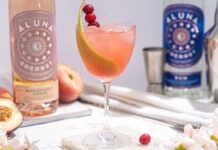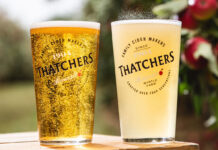Premium spirits can set a venue apart from the competition, firms say
Supermarket may be able to cut prices to levels so low they make many a publican’s eyes water, but when it comes to quality the on-trade can still have the edge.

Premium spirits in particular offer outlets the opportunity to shine, according to suppliers and producers, who said there are a number of steps operators can take to ensure they maximise the opportunity.
Andrea Montague, Bulleit brand ambassador for Diageo Reserve Brands, said there are “massive advantages” available to operators willing to improve and expand their premium spirits range.
“Stocking premium spirits is not only responding to the needs of the experimental consumer, looking for the ultimate drinking experience, but it also gives the venue a more premium feel and boosts profit margins,” said Montague.
When building a premium spirits range, Montague suggested operators carefully consider their target market and how their drinks menu matches up to the style of outlets.
“The target customers should be at the heart of what operators are offering in their venue, so it’s really important they understand the needs and wants of these consumers,” said Montague.
“The venue’s style, location and ambience should also be reflected in the drinks menu and in the brands they choose.”
Dan Bolton, managing director at Hi-Spirits, the firm behind Brooklyn Gin and US bourbon brand Buffalo Trace in the UK, agreed that operators should be mindful of their target audience, particularly as spirits knowledge has improved among customers in recent years.
“There has been a significant shift in terms of both customer expectations and knowledge of premium and craft spirits,” said Bolton.
“More customers than ever are looking for brands and serves that have a genuine story about their heritage or ingredients.”
Bolton suggested that premium spirits offer on-trade operators the chance to provide an experience which customers are unlikely to replicate at home.
Cocktails can also be a fantastic sales driver, according to Bolton, who advised publicans to ensure they get the balance right and avoid over-stretching themselves.
“It is essential to match the drinks menu to the available skills,” he added.
“A poorly-made cocktail, or one that simply takes too long to arrive, is a genuinely disappointing experience.”
When building a cocktail range, Steve Howard of Stock Spirits, the firm behind Keglevich, advised operators to take their staff members’ level of experience into account as well as the time taken to prepare drinks.
“The issue a number of outlets who want to offer their customers cocktails [face] is not only the perceived required expertise of a mixologist, but also the time taken by a bar person to create and serve an authentic cocktail, as well as the wide range of obscure, costly ingredients needed for cocktail production,” he said.
“Keglevich is a great option, as it is a 20-23% ABV blend of pure, award-winning vodka – an ideal base spirit for cocktails – but it also has over 10% fruit juice (melon, strawberry, peach, blood orange, lemon and apple). So any operators and bar staff can deliver a range of cocktails by simply adding standard bar staples such as a fruit juice and/or carbonated drinks to offer a wide range of premium, authentic cocktails.”
Euan Mitchell, MD at Isle of Arran Distillers agreed that cocktails “don’t have to be complicated” to hit the spot.
“With a top-quality spirit, little mixing is required,” he said.
Mitchell also suggested that food pairings “are an excellent way to introduce consumers to a new category” within premium spirits.
“Consumers will appreciate your guidance and recommendations and it can help support sales,” he added.

























